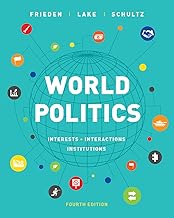As the United Nations Security Council gears up to discuss the Moroccan Sahara issue, it has become clear that this is not merely a diplomatic exercise but a crucial moment reshaping the global order. The dispute over the Sahara is not just about territory but a reflection of the power struggles among the five permanent members of the Security Council, each pushing its own agenda to redefine international relations.
Each resolution on the Sahara is a battleground where the interests of major powers clash, shaping the future landscape of multilateralism. The strategic importance of North Africa, with its energy routes and security concerns, has drawn the attention of key players like the United States, France, and the United Kingdom, who see the Sahara as vital to their regional stability and influence.
France, in particular, has shifted its stance to align firmly with Morocco, recognizing the Kingdom’s sovereignty over the Sahara as crucial for regional stability. This realignment reflects a pragmatic approach to safeguarding French interests in Africa while acknowledging Morocco’s pivotal role in the region.
However, the Sahara issue goes beyond just regional dynamics. It is intertwined with broader geopolitical shifts in Africa, where alliances and rivalries are reshaping the continent’s power dynamics. Morocco’s assertiveness in the region has triggered mixed reactions from countries like Algeria, South Africa, and Nigeria, each balancing cooperation with competition in their relations with Rabat.
The Sahara debate is not confined to New York but reverberates in African capitals, where Morocco’s strategic initiatives are met with a mix of support and skepticism. The Kingdom’s efforts to position itself as a key player in African integration and development are met with both admiration and apprehension from its regional counterparts.
On the global stage, Russia and China play their own strategic games in relation to the Sahara, with Moscow using the issue to counter Western influence and Beijing seeing it as a gateway to expand its Belt and Road Initiative in Africa. The Sahara has become a geopolitical chessboard where major powers vie for influence and control.
For Morocco, navigating these complex power dynamics requires a delicate balance of diplomacy and strategic positioning. The Kingdom’s goal is to secure international recognition of its autonomy plan for the Sahara while bolstering its role as a regional hub for energy, security, and infrastructure development.
While the Security Council deliberates on the Sahara, the resolutions passed reflect not just legal principles but the underlying interests of major powers. Morocco’s challenge lies in leveraging these interests to solidify its strategic position and ensure the Sahara remains a cornerstone of regional stability and connectivity.
Ultimately, the Sahara issue transcends mere territorial disputes and delves into the heart of global geopolitics. Morocco’s ability to navigate these complex power dynamics and transform its historical rights into a strategic asset will determine its influence in shaping the future of Africa and the Atlantic region.
📰 Related Articles
- Why Shanghai Stock Exchange is Key to China’s Global Financial Ambitions
- US-Iran Standoff: Trump vs. Khamenei, Global Power Play
- Simon Sebag Montefiore Explores Global Power Shifts Through History
- Power Struggles and Betrayals Unfold in ‘Sons of Anarchy
- Plant-Based Diets Key to Reducing Global Agricultural Land Use






